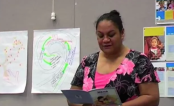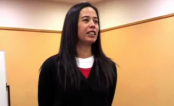Te Aho Arataki Marau mō te Ako i Te Reo Māori - Kura Auraki
Curriculum Guidelines for Teaching and Learning Te Reo Māori in English-medium Schools: Years 1-13
Curriculum guidelines 521 PDF (PDF, 4 MB)
Page navigation:
Ako
The concept of ako
The concept of ako describes a teaching and learning relationship, where the educator is also learning from the student and where educators’ practices are informed by the latest research and are both deliberate and reflective. Ako is grounded in the principle of reciprocity and also recognises that the learner and whānau cannot be separated.
Ka Hikitia, 2008, p.20
In te ao Māori, the concept of ako means both to teach and to learn. It recognises the knowledge that both teachers and learners bring to learning interactions, and it acknowledges the way that new knowledge and understandings can grow out of shared learning experiences. This powerful concept has been supported by educational research showing that when teachers facilitate reciprocal teaching and learning roles in their classrooms, students’ achievement improves (Alton-Lee, 2003).
The principle of ako affirms the value of the pair and group learning approaches in which students interact with their peers, teacher, tasks, and resources. These are very effective approaches for teaching and learning te reo Māori.
Ako … in a reciprocal learning relationship teachers are not expected to know everything. In particular, ako suggests that each member of the classroom or learning setting brings knowledge with them from which all are able to learn.
Keown, Parker, and Tiakiwai, 2005, p.12
Embracing the principle of ako enables teachers to build caring and inclusive learning communities where each person feels that their contribution is valued and that they can participate to their full potential. This is not about people simply getting along socially; it is about building productive relationships, between teacher and students and among students, where everyone is empowered to learn with and from each other.



